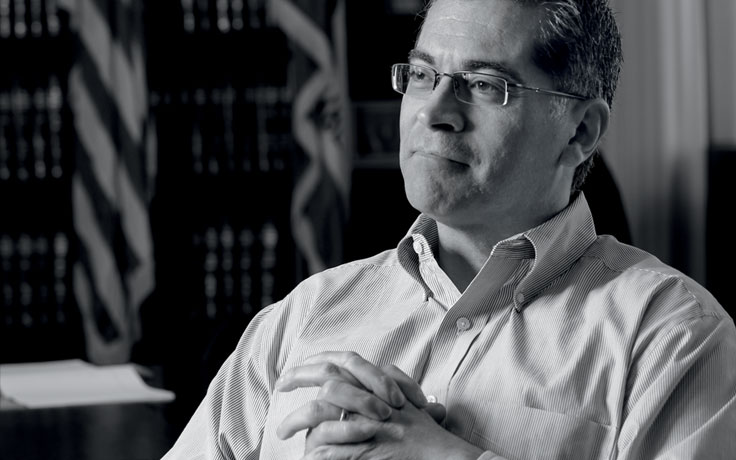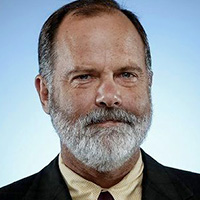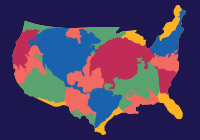IF CALIFORNIA IS THE SPEAR OF RESISTANCE against Washington’s new determination to deport illegal immigrants and pull back on climate change, Attorney General Xavier Becerra is the point of that spear. Appointed by Gov. Jerry Brown to fill the vacancy created when Kamala Harris moved to the U.S. Senate, Becerra now is California’s top law enforcement officer, empowered to defend its residents and their values against even the federal government.
Becerra is well-suited to the job. Friendly and unflappable, he’s also piercingly intelligent and ever-conscious of the life this country has given him. His father, as he notes, was a ditchdigger in Mexico who has lived long enough to see his son rise to the highest levels of American government. With the full-throated support of Brown and the state leadership, it is Becerra who will lead California through what may become a treacherous course. He’s ready and eager.
Becerra and Blueprint editor Jim Newton met recently in the attorney general’s Los Angeles office.
Blueprint: You’ve been a member of Congress; you’ve made federal law. Now, you’re the attorney general of California. What are your responsibilities if and when federal and state law collide?
Xavier Becerra: You know, the founders gave this a lot of thought. In fact, they erred on the side of giving the state much more power than the federal government. You always resort to the Constitution. It’s the best defense for states.
For me, for California, it helps to know that the founders really wanted the federal government to do those things that the states were not capable of doing, or at least not capable of doing well. We feel we’re pretty good at a number of things. You don’t become the sixth-largest economy by failing.
BP: That’s part of the paradox here, right? This is an economy that clearly could survive on its own.
XB: Yes. We know that it’s a team effort, that we need to do things with the federal government, [and that] we need to work closely with all our local governments. But we know that we could do these things. For California, it’s more a matter of, “Can we find partners?” We’re a very forward-leaning state. We are doing things that some states won’t do for a generation.
Do we want to stop that? No.
BP: Do you accept the principal that the federal government has the right to set certain national standards — air quality, for instance?
XB: It’s a given.
BP: If the federal government sets a standard for air quality, why shouldn’t a state be required to adhere to that standard?
XB: Not only should we follow federal mandates — we must follow federal mandates. Think of it as the floor. We can do anything that we want so long as we’re respecting what the federal law says is applicable to the states on matters that the federal government has the right to weigh in on.
Typically, when we want to go in a slightly different direction, we need to seek clearance from the federal government.
BP: So just to pose a hypothetical that might not be too hypothetical: Let’s say the Trump administration were to say: “Emission standards in the Air Quality Act are hurting job growth in this country. We therefore want to lower emission standards.” California, of course, is already exceeding those standards. Could the administration require California to lower its standards to meet the new federal rule?
XB: If California were exceeding a particular standard … any particular federal standard, any particular federal law, if the federal government thought we were in violation of that federal law, it could move to take action against the state on a pre-emptive basis.
In some cases, we will work with the federal government and say, “The federal law says this. We’d like to do something that we think is consistent with the federal law, but it may go in a slightly different direction — higher, lower, whatever. Can we work together so that we’re still fulfilling not just the letter but the spirit of the federal law?” That’s where we have gone, principally in the area of the environment, air quality ….
If we want cleaner water than the federal government requires, it doesn’t mean we’re violating the law by giving our consumers cleaner water. But we may have to get clearance to do that because it may impinge on other aspects of the federal law.
BP: I’m sure you noted that LAPD Chief Charlie Beck recently announced that there had been a decline in the number of reported domestic violence and sexual assaults by Latinos in Los Angeles. Not totally clear what’s going on there, but his speculation, and it seems sensible, is that there’s some fear of contacting authorities in this deportation-heavy environment. In light of that, could Trump or his administration say to Los Angeles: “You must deport everyone you believe to be here illegally in order to receive federal funds, even if you don’t think it’s in your best interests to do so?”
XB: The way you just said it, no. They cannot tell us that we must deport. We are not the federal government. We don’t deport. We don’t enforce immigration law. And so, they can’t tell us to do something that we’re not either obligated or permitted to do.
BP: Is there some level of cooperation that they are legally entitled to insist upon?
XB: It depends on what kind of cooperation they’re insisting on.
BP: Well, use this example: If it came to the attention of LAPD that someone who had called in as a victim of a crime or a witness to a crime … that that person was not in the country legally, could the federal government require the officer to share that information with ICE?
XB: Under current law, I would say no. Could the federal government change the law and require the officer to do so? That’s dubious. On what basis under the U.S. Constitution would the federal government have the ability to enact a law to coerce a state to do something?
BP: There was a time when the federal government made receiving highway funds contingent on raising the drinking age to 21 or lowering the speed limit to 55. There was a nexus between highway fatalities and those requirements, but it was a condition of receiving the federal money. Could you imagine a situation where Congress enacted a provision that said: In order to receive law enforcement support, you must promise to turn over anyone you believe to be here illegally?
XB: I don’t think that would pass constitutional scrutiny.
BP: What’s the difference?
XB: It’s the nexus. It’s the relationship of the requirement to the activity. What’s the purpose served? Is that the only way to do it? Is it appropriate to [make] a state do something … by extorting them to do it.
BP: I’m reluctant to bring this up because it almost treats it too seriously, but you remember the Berkeley protest recently where demonstrators violently objected to the Breitbart editor speaking, and Trump, the following day, suggested that in retaliation the government should consider cutting university funding? Is there any way legally for an administration to react to an event by cutting funding?
XB: If our Constitution had been written by adolescents, and if government activity and laws were executed by adolescents, and if the Supreme Court were populated by adolescents, I guess I could see that. Having raised three children, having been one myself, I can understand how the mind of an adolescent can work that way. But we have grownups.
BP: Presumably we have some grownups.
XB: We need grownups.
BP: What would happen if some city in California decides that we really want clear out every findable undocumented immigrant, that we want to help the federal government as much as we can? Do you have an obligation to help that city help the federal government?
XB: You’re talking about the Sheriff Arpaio situation?
BP: Exactly. We could have one here.
XB: If our state laws were not clear, perhaps a Sheriff Arpaio-type could try to get away with it, explaining his or her actions that way. But California law is pretty explicit on how our local law enforcement authorities should conduct themselves when it comes to enforcing our public safety laws. And so that would not, should not, happen in California — and as the attorney general for the state of California, I’ll do everything to make sure it will not happen here.
BP: There’s been some talk of legislation to, in effect, declare all of California a sanctuary for undocumented persons. Obviously, there’s a lot of confusion about what “sanctuary” means. But would that be helpful to you to have that kind of statewide mandate, or do you have enough authority as it is?
XB: Clarity in the law is always good. Having laws that are clear in how we can protect our people and our interests … are always good. At this stage, where we have a federal government, an executive, that seems intent on forcing states to do things that the Constitution does not require us to do — ban people from coming into the country based on their religion — it helps when your laws are clear with regard to what you as a state are entitled to do under the U.S. Constitution. So I think there’s always value in providing clarity, not just to the federal government, but also to our state and local authorities — in this case our law enforcement — about what we can and cannot do…and what the state requires and permits.
BP: In your new job, you work with a lot of different authorities: The governor and state officials, mayors, etc. Do you feel as if California is fairly united on these issues?
XB: You know, I’ve met with most of the sheriffs — we’ve got 58 counties. I’ve met with many of the police chiefs, at least of the major cities. I have met with probably more than half of the DA’s, many of the city attorneys, many of the city mayors.
In California, I think this is a pretty settled issue. Most of our chiefs and sheriffs will say: “We’re not trying to enforce immigration law.” They want people to know that they are there to protect state and local public safety laws.
BP: What are the likely points of conflict that you see legally between the state and federal government over the next few years?
XB: As I said, California is a forward-leaning state. We’re doing things that many parts of the country won’t do for quite some time. We think that has helped us. We are creating jobs. We do have a growing economy. We are continuing to educate our people. People continue to come to California.
So someone would have to explain to me why we should change what we’re doing. We have the sixth-largest economy in the world. We have a growing high-tech community. Innovation makes California its home. People still look at California as a golden state. My suspicion is that California is not going to change direction anytime soon. The only reason we would have conflict with anyone, including the federal government, is if they think success is a bad thing. If they do, we’re going to try to do what we can to prove them wrong and do everything we can to keep them from stopping us.
BP: I was recently going through some poll numbers that Zev Yaroslavsky put together, and a couple things came through: One was that an overwhelming majority of Los Angeles County residents are happy with race relations here, a finding you certainly wouldn’t have gotten 20 years ago. Another was that a very large number, particularly of Latinos, would be worried to recommend that a friend or family member seek help from a federal agency for fear that they could face deportation. How do you square those numbers?
XB: I’m from a family of immigrants, and it’s hard for me to be a pessimist. I think that if you work hard, you are going to get ahead. For me, there are better days ahead for my country.
For some people, though, it’s them or us, and we have to separate ourselves from the “them.” My sense is in California we’ve gotten past that. We’ve realized how much like us the “them” really are. When we work together as a team — wow! — we’ve become the sixth-largest economy in the world. And so the inclusion that you see in California, where people want to protect their neighbors, I think it comes from experience.
The example I always use is that less than a generation ago we saw in America that a majority of folks still did not believe that it was appropriate for people of the same sex to marry ….
BP: Yes, that’s changed in my adult lifetime…
XB: And if you got AIDS, you were being punished by the Lord. But then all of a sudden they found out: “Wait a minute: My nephew? My sister? My neighbor? My golfing buddy?” All of a sudden, it was no longer them, it was part of us.
I think that’s what’s going on. In California, we’ve experienced diversity in such a great degree — with immigration; with having people from all walks of life, whether you were an Okie from Oklahoma, or whether you were, like my parents, from Mexico, or wether you were from India or Poland or wherever — it’s no longer them. It’s all us ….
For us, it works.
For others, maybe they’re still feeling the pain of economic anxiety. There’s no longer this opportunity to be in the middle class. And you’re looking for the culprit, and you’re saying: “It’s them,” whoever the “them” might be.
In our state, we look at it differently. It’s not: “Don’t Tread on Me,” “Stay out of our way.” It’s more: “Join us. Try it.”
That’s why, perhaps, I don’t see [what] the federal government or the new administration is doing as necessarily them vs. us. The adolescent has yet to become a grownup.
BP: Last question, do you take California secession seriously?
XB: I love being part of the United States of America. A guy with the name of Xavier Becerra, and I’m as American as it gets. (He reaches for a photograph of his parents flanking President Clinton.) My dad was a ditch digger. My mom didn’t come to this country until she was 18, and she married my dad. And they got to meet the President of the United States.
Why would a ditch digger get to meet the President of the United States? Because his son became a member of Congress. Why would I want to divorce myself from a country that let my mom and dad meet the most powerful person in the world?
To those in California who say secession, I get it. They feel like maybe other parts of the country don’t want to join in our success and are trying keep us down. But rather than think that the only way to resolve this is to divorce ourselves from the rest of the country, I’d rather take my lead from Abraham Lincoln and say we’re better off if we’re united.

























Comments